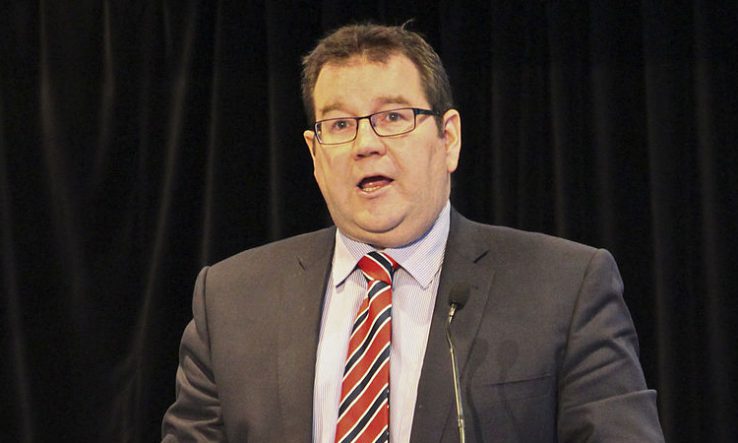
Image: New Zealand Tertiary Education Union [CC BY-SA 2.0], via Wikimedia Commons
Measures include $20m hardship fund for students and $1.6bn for free tuition and apprenticeships
New Zealand’s finance minister Grant Robertson (pictured) has announced an unprecedented $50 billion Covid-19 response and recovery fund as the main focus of the government’s 2020 budget.
According to budget data, the amount equates to 17 per cent of NZ’s GDP and is around 15 times more than the government would usually allocate to new budget initiatives.
In his speech on 14 May, Robertson said the pandemic was a once-in-100-years challenge that called for “a once-in-a-generation budget”.
“This is the most significant financial commitment by a New Zealand government in modern history. The fund does not represent a target for spending but gives us the flexibility to be able to respond as necessary,” he said.
“Our success in controlling the virus has come at a price, with hundreds of thousands of Kiwi workers and employers having to stay home, and jobs and businesses lost. But I stand by our view that the best economic response is a health response. By going hard and early—getting on top of the virus, while protecting jobs and businesses—we now have a head start on many countries around the world to get the economy moving again.”
The budget acknowledges the role of education and training in rebuilding the country, allocating $1.6bn for a tertiary training package that will fund free tuition and apprenticeships for “critical industries”.
“This government is absolutely committed to the place and role of education in supporting our recovery and rebuild,” Robertson said.
“We also understand that the Covid-19 crisis has put pressure on students, many of whom have lost income as a result of losing part-time work. We are establishing a $20 million hardship fund in this budget, and in further responses we will continue to work on other ways we can support students through this difficult time.”
However, he stressed that there could be “no sugarcoating” the national impact of the crisis, with forecasts pointing to a sharp fall in economic activity and “a substantial rise in unemployment”.
“New Zealand’s real GDP growth rate is forecast to decline from 2.8 per cent in the year ending June 2019 to -4.6 per cent in the year ending June 2020, driven by a quarterly decline in GDP of over 20 per cent in the June 2020 quarter,” Robertson said.
“Annual average GDP growth is forecast to return to positive from the year ending September 2021 onwards. Unemployment is forecast to increase significantly, rising to 8.3 per cent in the year ending June 2020, before peaking at 9.8 per cent in September 2020 and then recovering thereafter.”